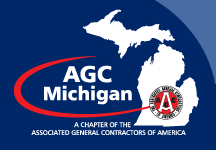The new clause [FAR 52.232-40] requires prime contractors, upon receipt of accelerated payment from the Government, to make accelerated payment to small business subcontractors, to the maximum extent practicable, after receipt of a proper invoice and all proper documentation from small business subcontractors. [ Note: If the Government does not accelerate payment to a prime contractor, that prime contractor is under no obligation to accelerate payments to its small business subcontractors. 78 FR 70478 ]
This clause will be inserted into all new solicitations issued after the effective date of this rule [December 26, 2013] and resultant contracts, including solicitations and contracts for the acquisition of commercial items.
This rule does not provide any new rights under the Prompt Payment Act and does not affect the application of the Prompt Payment Act late payment interest provisions.
52.232-40 Providing Accelerated Payments to Small Business Subcontractors (Dec 2013)
(a) Upon receipt of
accelerated payments from the Government, the Contractor shall make
accelerated payments to its small business subcontractors under this
contract, to the maximum extent practicable and prior to when such
payment is otherwise required under the applicable contract or
subcontract, after receipt of a proper invoice and all other required
documentation from the small business subcontractor.
(b) The acceleration of payments under this clause does not provide any new rights under the Prompt Payment Act.
(c) Include the substance
of this clause, including this paragraph (c), in all subcontracts with
small business concerns, including subcontracts with small business
concerns for the acquisition of commercial items. 78 FR 70479
For more about the Federal Acquisition Regulations (FAR), click here. For a complete copy of all the FAR regulations, or to download a complete set, click here.
For more about Michigan Construction Law Update, click here.







